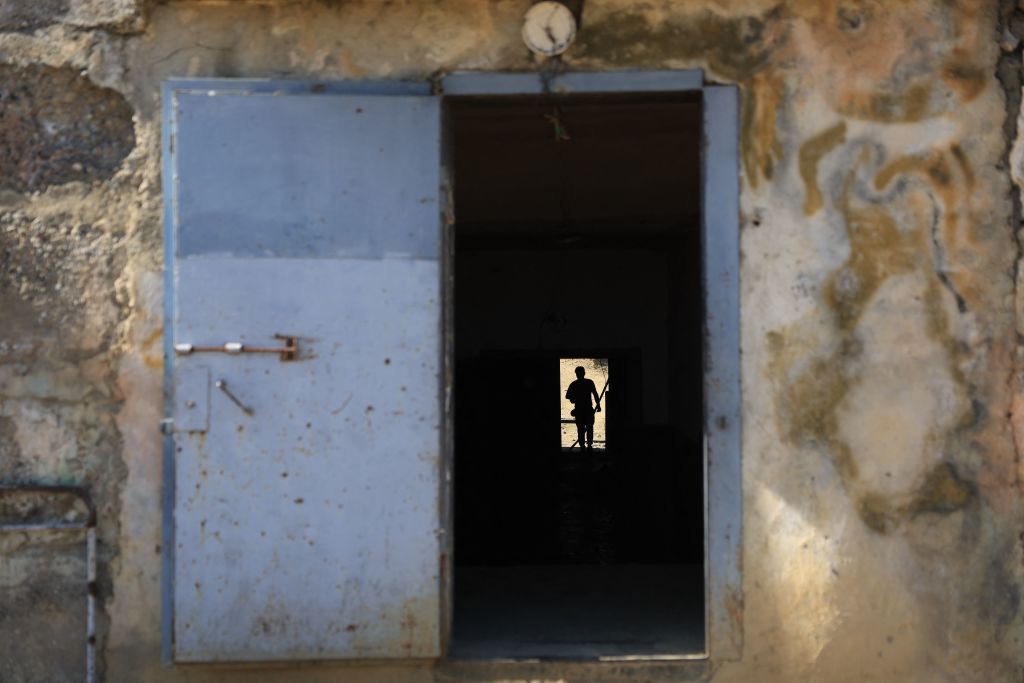
In September, the Nagorno-Karabakh conflict, a war that has been cold since the demise of the Soviet Union, rapidly heated back up. Azerbaijan, after a lightning military campaign that it described as an ‘anti-terrorist’ operation, reclaimed the mountainous province of Nagorno-Karabakh, an enclave within its borders that has been run by a breakaway Armenian administration since 1992.
Azerbaijani President Ilham Aliyev hailed the ‘reintegration’ of the province into Azerbaijan, while pledging to protect the rights of its Armenian population. Unconvinced by these reassurances, more than 100,000 Armenians fled the region they know as Artsakh and crossed into Armenia proper. With winter setting in, a humanitarian crisis now looms on Europe’s southern perimeter.
Ethnic relations are often tense in the Caucasus region, with its complex demographics, contested histories and overlapping claims to ‘homelands’. This is particularly so in Nagorno-Karabakh, control of which, since the 1400s, has passed between Armenian, Turkic, Persian and Russian hands.
In the early 20th century, the newly independent Armenian and Azerbaijani republics tussled over the territory before the Soviet Union swallowed them both. Joseph Stalin set the scene for ongoing rancour by apportioning Nagorno-Karabakh to the Azerbaijan Soviet Socialist Republic, despite its overwhelming Armenian majority. After the Soviet Union collapsed, Nagorno-Karabakh Armenians took matters into their own hands, reportedly massacring Azerbaijanis at Khojaly in 1992 and expelling them from Shusha and Aghdam. Azerbaijan never forgot, or forgave.
The events of this year, along with a 2020 Azerbaijani campaign to recapture the region, are but the latest in a longer cycle of ethnic tit for tat. Azerbaijan’s comprehensive victory and its offer last month to hold peace talks with Armenia could be seen as an apparent resolution of an intercommunal conflict on the fringes of Europe that policymakers need no longer worry about. However, the conflict will still have significant geopolitical and diplomatic implications, both in the Caucasus and beyond.
In late 2022, Azerbaijan blockaded the Lachin corridor linking Nagorno-Karabagh to Armenia. The blockade broke the terms of the Russia-brokered 2020 peace deal that had brought some measure of calm to the region, and created rapidly deteriorating conditions for the province’s Armenian residents. Although the matter was discussed at the UN Security Council, it earned little international criticism. Despite a centuries-long presence, the Armenians were often deemed ‘separatist’ because the territory is recognised as part of Azerbaijan. German Foreign Minister Annalena Baerbock was one of few to speak out, condemning Baku’s decision to ‘create facts on the ground by military force’ despite its repeated assurances that it would not do so.
September’s escalating tensions and the departure of the Armenian population en masse apparently took EU diplomats by surprise. In a since-deleted post on X, the EU Commission stated that it would step up support to those ‘who have decided to flee Nagorno-Karabakh’, a tepid reference to what has amounted to ethnic cleansing.
A Turkish journalist similarly stated that Armenians went ‘of their own accord’, but there can be little doubt that they left fearing for their lives.
Baku makes bold statements about protecting multiculturalism, but its actions speak louder than words. A street in Nagorno-Karabakh’s largest city, Stepanakert, has been renamed after Enver Pasha, the architect of the 1915 Armenian genocide. Azerbaijan has also been accused of wilfully destroying Armenian cultural sites elsewhere, though Armenia has also been accused of using the same tactics.
The EU has since announced €5 million in humanitarian funding for peoples displaced from Nagorno-Karabakh, while the director of USAID, Samantha Power, jetted into Yerevan, the Armenian capital, in a show of solidarity. Armenians on social media, however, said it was too little too late. They may have a point.
Azerbaijan’s skilful diplomacy and its importance as an energy supplier to Europe have muted Western responses to its increasingly combative positioning in recent years. In 2022, EU Commission President Ursula von der Leyen hailed Azerbaijan as a ‘reliable, trustworthy partner’ after securing increased Azerbaijani gas supplies to Europe. She made no mention of its bellicose posturing, or of the lack of political freedoms for the Azerbaijanis themselves, who face many human rights violations, including attacks on the country’s independent media.
Despite the prospect of new peace talks, some Armenians fear that Azerbaijan’s designs are not limited to Nagorno-Karabakh. Certain Azerbaijani figures retain irredentist aspirations, speaking of ‘Western Azerbaijan’, meaning Armenia. There’s also chatter about establishing a so-called Zangezur corridor, which would link Azerbaijan and Turkey through Armenian territory.
Joint Azerbaijani–Turkish military manoeuvres in October did little to quell Armenian fears. Turkey is both Armenia’s historical enemy and Azerbaijan’s staunchest ally, and some analysts describe its posture as one of increasing militarism. It has certainly recently adopted a more assertive foreign policy, which has had repercussions across the Caucasus, eastern Mediterranean and Balkans.
Nonetheless, Azerbaijan has likely overplayed its hand. Some European diplomats are rethinking how they deal with Baku. Armenia, for its part, is developing closer relations with France and, attempting to extract itself from Russia’s embrace, has sent its first aid package to Ukraine. Armenia is also inclined to enhance its relations with neighbouring Iran—a move that won’t be applauded by Israel, which counts Azerbaijan as an ally and, indeed, supplied much of the weaponry that made its campaign in Nagorno-Karabakh possible.
Control of Nagorno-Karabakh may be resolved for now, but regional dynamics in the Caucasus remain very much in flux.

